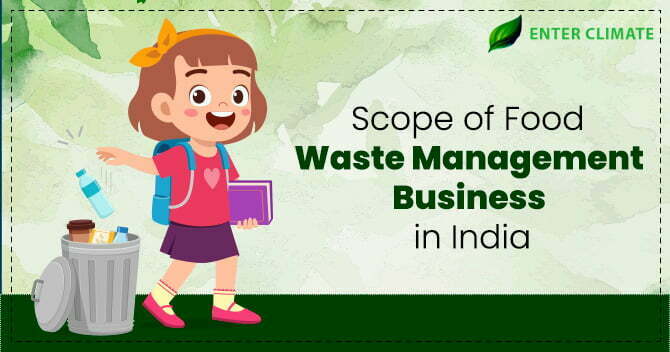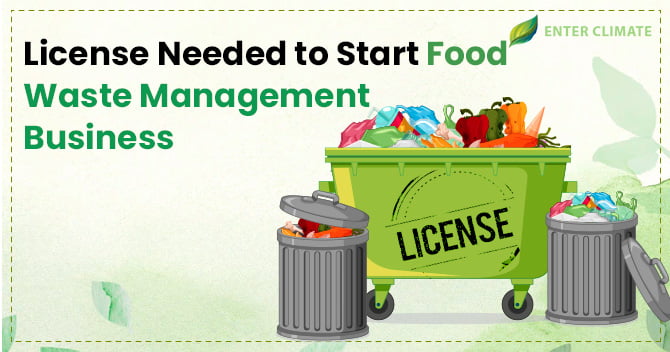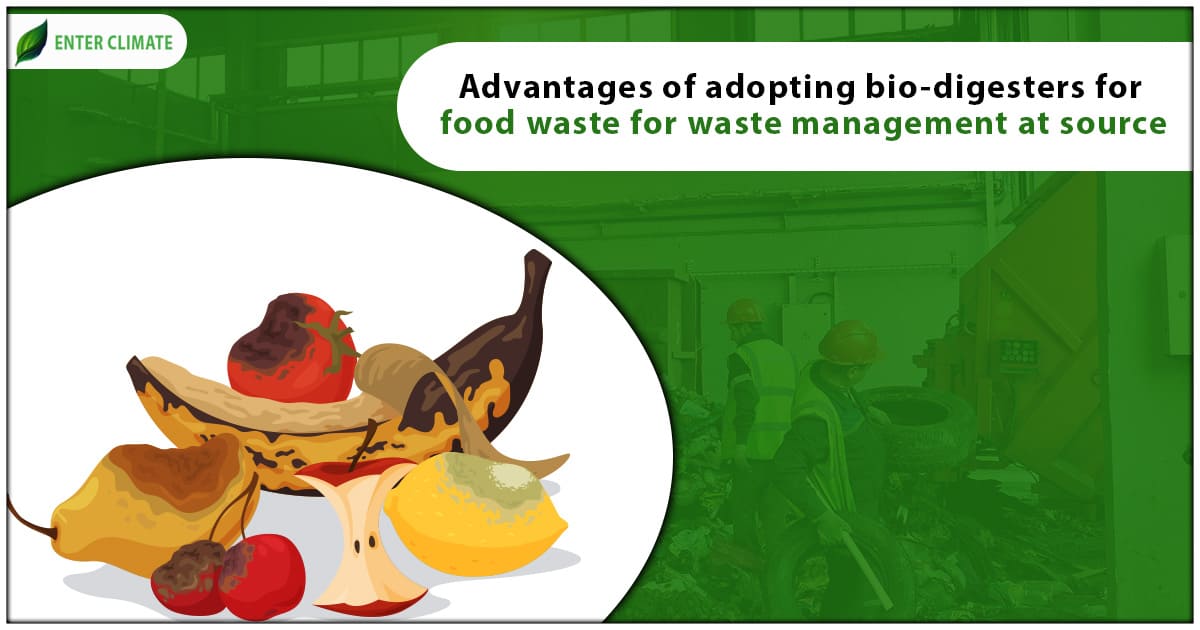Scope of Food Waste Management Business in India: An Overview
 02 Aug, 2022
02 Aug, 2022 
Food generally refers to what we consume, but when discussing food waste management, the term ‘food’ includes food items such as uncooked, cooked, processed food, and food grains. In this regard, waste comprises food that is either perfectly fit for human consumption but still discarded as well as those food items that are discarded as a result of deterioration or due to spoilage, food spills, etc. In both cases, the reasons for wastage can be many- ranging from avoidable situations like cooking more than the required quantity of food, taste preferences, etc. In many cases, infrastructure limitations at the production, storage, processing, and distribution stages of the food lifecycle which may not be in the person’s control, are the reason for wastage. In the case of food grains, the wastage can be in the form of bruising, wilting or other such damage caused to the food grains. While the boom in food grain production in India post the green revolution has proved that India can feed its entire population and will still be left with reserves for export, this is not the actual picture. India still has millions who sleep on an empty stomach. Maybe you are here not to discover the food production capacity or get into an ethical dilemma related to food wastage. Suppose you are an existing food waste management business or are interested in setting up such a business, in that case, you can significantly benefit from this article, where we will try to explain the potential and scope of Food waste Management. Apart from analysing business opportunities in food waste management, we will also be analysing the ethical issues of food waste and how a food waste management business helps the country tackle this issue.
Scope of Food Waste Management Business
Food waste management Businesses have an enormous scope in India and can target production and retail levels. It is estimated that 40% of food items get wasted at some level, in India. To fully understand the scope of the food management business in our country, a person in business must decipher the reasons for the magnitude of wasted food and how this food can be funneled differently rather than dumping it in landfills. In India, Food waste management is regulated through the Solid Waste Management Rules, 2016[1], which stipulates the channelising the waste by recovery, reuse and recycling as well as segregation of food at the source. The Act also mandates that all hotels and restaurants segregate biodegradable waste and set up a collection system for composting/bio-metalation within the sites.
Examples of Businesses that use waste food
Private studies have shown a Waste Food generation in India will continue to grow along with the population and may accelerate with changing lifestyles of eating out and food deliveries. When food is wasted, the natural resources and physical resources applied to prepare the food for eating are also wasted. Therefore, there is an immediate requirement for food waste management. In India, there are many ways of food Waste management, depending on the state of food. Irrespective of what model of business you choose for food waste management, you will need to fulfill certain legal obligations in terms of licence and permits. The prerequisites for starting the business can vary in the form of the authorisation and licenses required. You may contact Enterclimate for all-inclusive assistance for your desired waste management business. Some of the popular food waste management services include
- Food Bank: Leftover food from restaurants and celebratory gatherings serving food like weddings and parties can be timely collected and distributed among the needy through food collection services and food banks.
- Vermicompost Farming: Composting and vermicomposting of spoiled or discard food collected as wet waste, can be used to manufacture compost and manure for agricultural fields.
- Making Cattle feed: Another profitable business in food waste management is converting the food remains and discards like fruits and vegetable peels and leftovers from food and grain processing to make cattle and animal feed.
- Raw materials for industries: Discards from meat processing and selling units to be made into pig feeds, pharmaceuticals, and other non-edible items.
- Manufacturing Fertilisers: Different products like biofuel and biomethane can also be made depending on the nature of waste or spoilt food grains.
- Manufacturing edible food items: Discards from agricultural fields can be processed through new age technologies to make many food items. For instance, spent grains leftover from the beer-making process are often discarded but can be used to make nutrition bars because of their high protein and fibre content.
Legalities Involved in the Food Waste Management Business
All Food Management Businesses must register with their concerned State Pollution Control Board and comply with the rules and procedures mentioned in the Solid Waste Management Rules. They must fill out form 1 and submit it to the SPCB/PCC for NOC. The Businesses will need to apply for consent under Air and Water Act to their respective SPCB/PCC. Documents needed at this stage include.
- Business Registration Certificate
- Factory license/trade license
- PAN Card of the Authorized Signatory
- GST Certificate
- Layout plan
- Process flow chart
- Proof of ownership of site or rent/lease agreement
Conclusion
This food wastage in India isn’t limited to any particular sector like food establishment or manufacturing and processing facilities. It perforates through every stage where food items are involved- from agricultural farms to our plates. The reason is not limited to any one factor. Food grains rot sitting still in godowns because of gaps in the logistics supply chain, lack of cold storage, etc., and those who can afford to waste it. Food is not just a source of energy; it finds an important place in our traditions and culture. Despite having spiritual significance for many, approximately 40% of India’s food is wasted. It is a shame that Global HungerIndex, 2021 has ranked India at 101’st place out of 116 countries. A food waste management business can help tackle both these problems. These businesses can target any of the stages of the food cycle like the harvesting stage, processing stage, transportation stage, packaging stage or the most commonly found–consumption stage. Such businesses will help reduce the economic and environmental impacts of food wastage.













